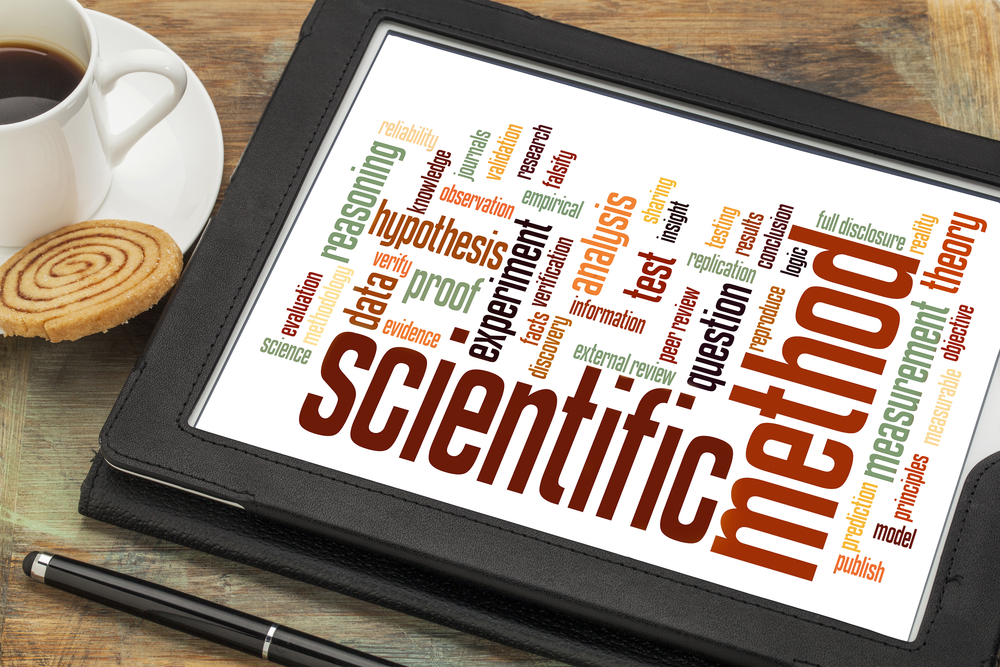Understanding life cycles Normal Science Worksheets for Ages 6-7
4 filtered results
-
From - To
Unlock the fascinating world of life cycles with our "Understanding Life Cycles" worksheets designed for children ages 6-7. These science worksheets offer engaging and educational activities that make learning about the stages of life in plants, animals, and insects both fun and easy. Each worksheet includes vibrant illustrations, interactive exercises, and simple instructions to help young learners grasp complex concepts. Perfect for classroom use or at-home practice, these printable resources nurture curiosity and enhance understanding of nature’s cycles. Empower your child or students with essential science knowledge through hands-on learning!
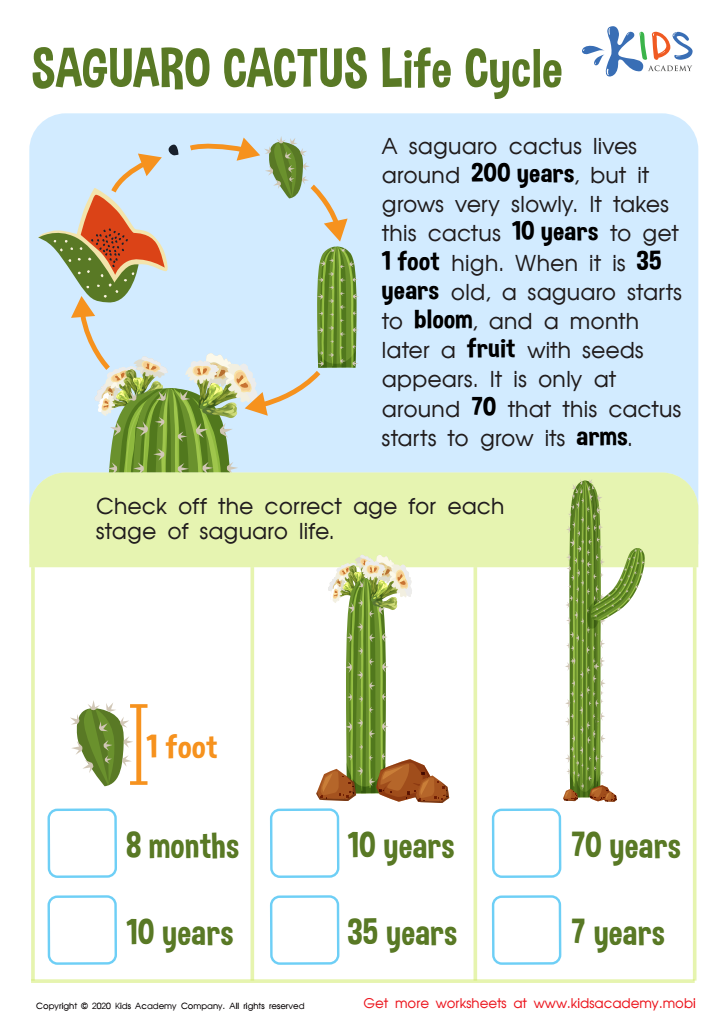

Saguaro Cactus Life Cycle Worksheet
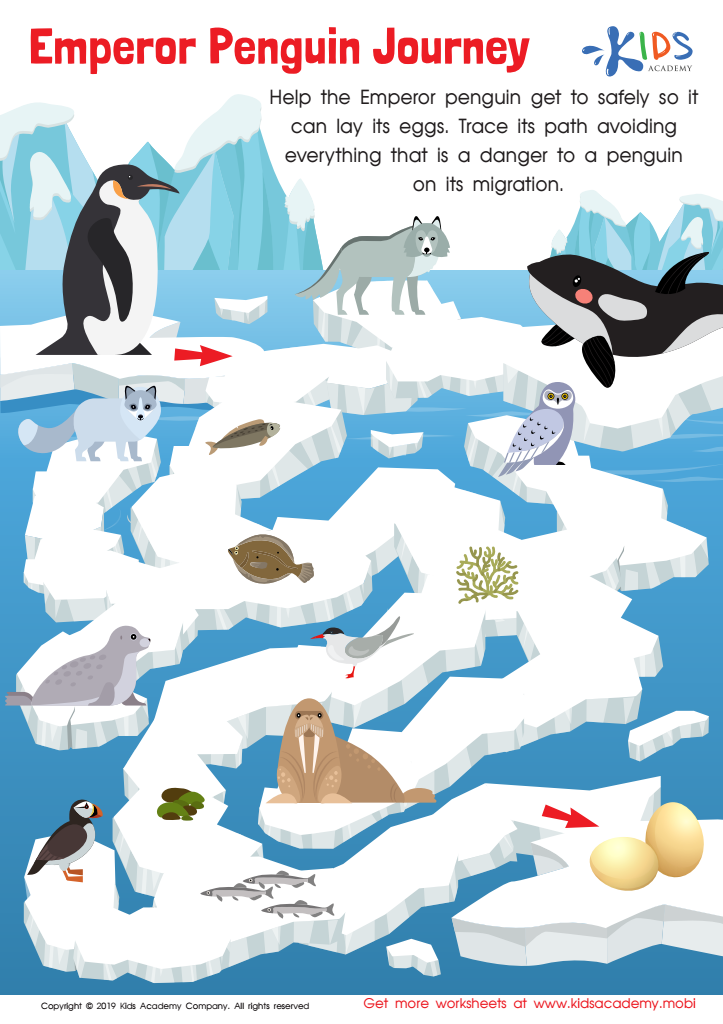

Emperor Penguin Journey Worksheet
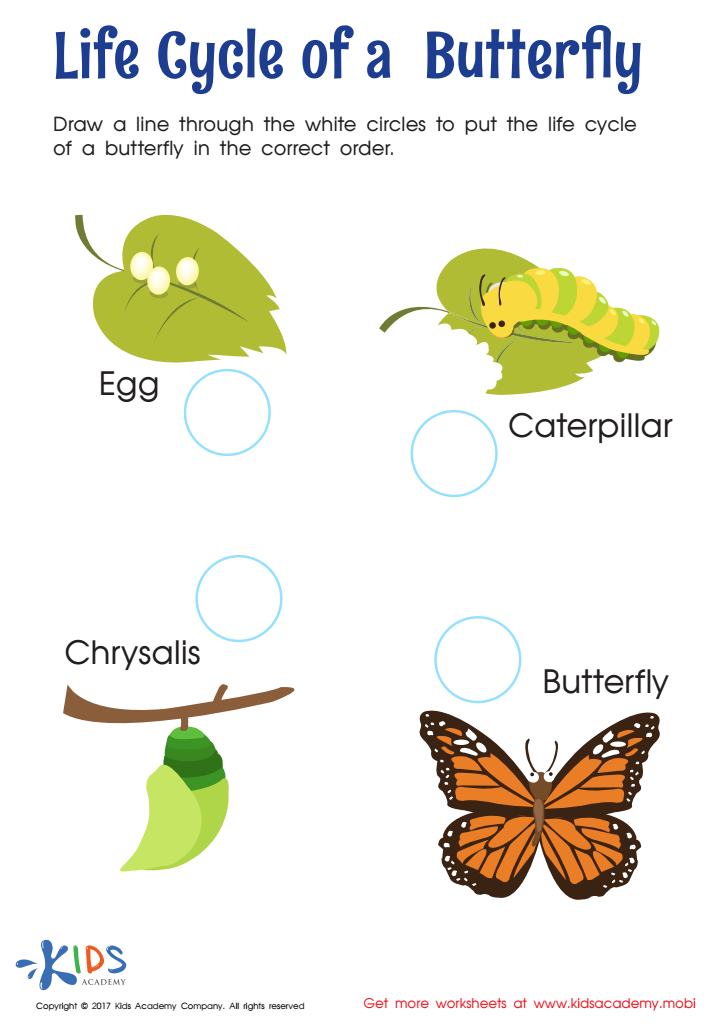

Life Cycle of Butterfly Worksheet
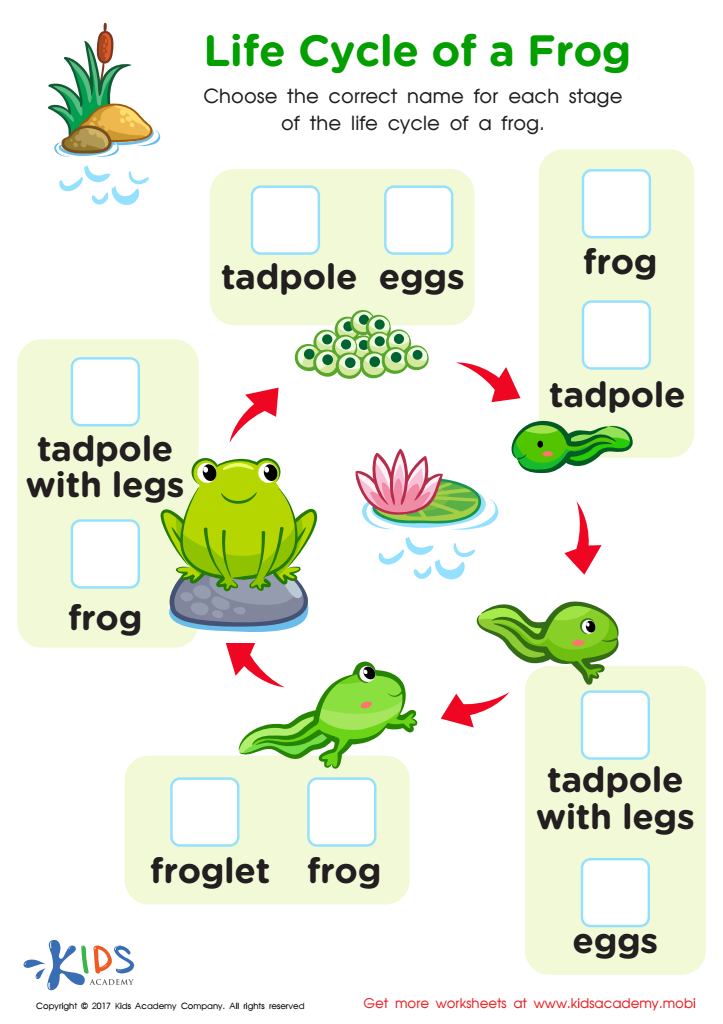

Life Cycle Frog Printable
Understanding life cycles is a key component of early science education for children ages 6-7 as it builds foundational knowledge about the natural world around them. For parents and teachers, fostering this understanding offers numerous benefits for a child's development. Firstly, learning about life cycles—such as those of plants, butterflies, or frogs—piques innate curiosity, making science engaging and relatable. For example, watching a caterpillar transform into a butterfly enriches their sense of wonder and helps to develop patience and observation skills.
Furthermore, these topics prepare children for more complex scientific concepts they will encounter in later grades. Understanding life cycles also instills a sense of responsibility and respect for living things, as children learn about growth, reproduction, and the interconnectedness of ecosystems. They grasp vital concepts, such as how different species depend on each other and on their environments for survival.
Pedagogically, teaching life cycles aligns well with hands-on learning approaches—activities like growing a plant from a seed or maintaining a small aquarium offer practical experience and reinforce learning through direct interaction. This fosters skills in critical thinking, prediction, and hypothesis-testing. Parents and teachers who emphasize life cycles help nurture scientifically literate, environmentally-conscious individuals, equipping them with the tools to make informed decisions about the world they inhabit.
 Assign to My Students
Assign to My Students



